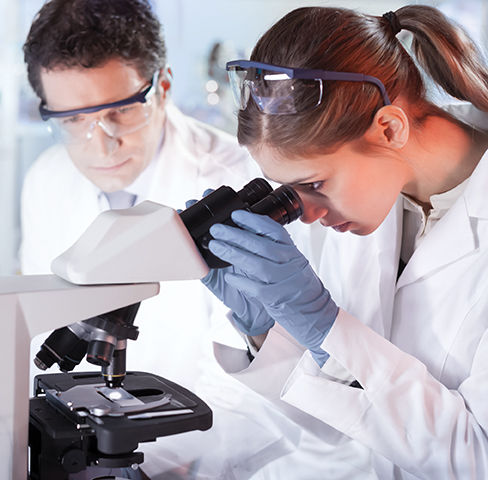$26 million initiative will bring biomedical research to the college
The School of Science will play a pivotal role in Behrend’s partnership with the new Magee-Womens Research Institute in Erie, a $26 million initiative that will bring locally focused clinical medical research trials to the region, improving the health of generations of women.
The college will co-locate faculty members and students at the institute’s downtown facility, which will be affiliated with UPMC Hamot, and at a new biomedical commercialization and translational research lab in Knowledge Park. The School of Science plans to hire two faculty members who will collaborate with MWRI Erie beginning next year.
MWRI is the largest research institute in the United States devoted exclusively to the health of women and infants. Since 2007, the Pittsburgh-based institute has led the nation in National Institutes of Health (NIH) funding for reproductive health research. MWRI Erie is expected to draw significant research funding from federal agencies, including NIH, and from national foundations, pharmaceutical and medical device companies, and others who are involved in clinical research.
The institute expects to attract up to $50 million in new funding over the next ten years. The initial funding for MWRI Erie includes a $6 million grant from the Erie Community Foundation. Of that, $1.1 million will be utilized by Penn State Behrend to build a translational research lab in Knowledge Park and create a new instructional lab in the School of Science, which will support a new minor in Biochemistry/Molecular Biology. The School of Engineering will also develop a new minor in Biomedical Engineering.
Faculty members, MWRI Erie researchers, and start-up ventures will use the labs to develop medical discoveries into products such as diagnostic tests and surgical devices. The Knowledge Park lab also will provide space and instrumentation for bench experiments, including human genetic studies, data analytics, and medical-device prototyping.
“We can provide the academic programs and the pipeline of student talent that will sustain this initiative,” Chancellor Ralph Ford said. “By adding biomedical commercialization and support for the start-up companies that will develop from MWRI Erie, we will fuel economic growth well beyond the original vision for the institute.”
Penn State Behrend, the Hamot Health Foundation, UPMC, and the MWRI Foundation each have committed to investing a minimum of $5 million in MWRI Erie. The college is working to raise additional private funds, which will be matched by Penn State through the economic development matching gift program of the University’s “Greater Penn State for 21st Century Excellence” campaign.
The partnership with MWRI Erie is reflective of the college’s Open-Lab model of learning and discovery, in which business leaders, faculty members, and students engage in research and product development as teams.
“To attract the highest-caliber researchers, MWRI Erie requires an experienced and respected academic partner,” said Dr. Ivor Knight, associate dean for research and graduate studies and professor of biology. “They chose Penn State Behrend because of our core capabilities in engineering and the sciences, our experience working with industry partners in applied research and technology translation, and the additional resources available to us through the larger Penn State research enterprise. We have the depth that no other local institution can match.”
